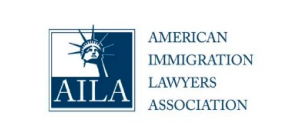Latest Developments in
Immigration Law
Relief for Afghan Nationals: Humanitarian Parole

Overview
Humanitarian parole authorizes an individual to temporarily enter the United States when there is an urgent humanitarian reason or significant public benefit. See INA section 212(d)(5)). Parole requests are discretionary and reviewed on a case-by-case basis. Anyone may request parole for himself or herself, or on behalf of another individual.
A variety of circumstances and reasons for the requests are considered (e.g., emergency medical reasons, family reunification, participation in legal proceedings, protection from targeted harm). A grant of humanitarian parole allows for lawful presence in the United States for a specific period. Humanitarian parole does not confer immigration status and does not provide a path to permanent residency. Generally, USCIS will specify the duration of parole, if granted.
Under the Operation Allies Welcome program, Afghans granted paroled will be permitted to stay for two years and may be eligible to apply for immigration status. The CDC issued a humanitarian parole exemption to the requirement for a Negative Pre-Departure COVID-19 Test Result for individuals relocating to the U.S. from Afghanistan. However, once in the United States, Afghans may be subject to medical screening and vaccination requirements. 1
Application Requirements and Fees
1. Form I-131, Application for Travel Document
2. Form I-134, Affidavit of Support completed for each sponsor
a. Evidence of a sponsor’s ability to provide financial support to the parolee for the
duration of the parolee’s stay in the United States
b. There must be evidence of sufficient income or financial resources to assure that
the parolee will not become a public charge (e.g., bank statements, pay stubs, or
income tax return if self-employed).
c. The immigration status or citizenship of the sponsor is considered to determine
how readily available the sponsor’s support would be. Preference is given for U.S.
Citizens or legal permanent resident sponsors.
3. Copy of a valid and unexpired passport.
a. If unavailable, submit another form of government-issued identification, such as a Tazkera (with an English translation, if none is provided on the document), and an explanation.
4. Detailed Explanation and Supporting Documentation for Request for Parole
a. Reasons why the petitioner is requesting parole
i. Evidence of the severity and imminence of the harm
ii. Evidence of beneficiary’s particular vulnerabilities
b. Length of time the beneficiary needs parole
c. Why the beneficiary cannot obtain a US Non-immigrant or immigrant visa
i. Evidence of lack of access to relief or protection measures other than
parole
d. Copies of previously filed immigrant or nonimmigrant petitions
e. Copy of a government-issued identification that indicates the immigration status
or citizenship of the petitioner and the sponsor
*There are additional requirements when parole is requested for a minor child
5. Submit a filing fee of $575 or Form I-912, Request for Fee Waiver
6. G-1145, E-Notification of Application/Petition Acceptance [Optional, but strongly
encouraged as filing receipts are delayed.]
7. An application may be expedited by marking “EXPEDITE” at the top of the application
and including an explanation of why there is a need to expedite.
Mailing Address:
USCIS Dallas Lockbox
For U.S. Postal Service (USPS):
USCIS
Attn: HP
P.O. Box 660865
Dallas, TX 75266-0865
For FedEx, UPS, and DHL deliveries:
USCIS
Attn: HP (Box 660865)
2501 S. State Hwy. 121 Business
Suite 400
Lewisville, TX 75067-8003
After USCIS receives the application, USCIS may send a biometric services notice, notice to appear for an interview, and notice of the decision. If granted, a parolee may request work authorization by submitting Form I-765.
Additional Resources to Learn More About the Program
• USCIS Humanitarian Parole
• USCIS Information for Afghan Nations on Parole into the United States
• USCIS Humanitarian or Significant Public Benefit Parole for Individuals Outside the United States
• Guidance on Evidence for Certain Types of Humanitarian or Significant Public Benefit Parole Requests
• AILA Common Questions When Filing Humanitarian Parole Application
• AILA Humanitarian Parole Checklist for Afghans
1. If your client was an Afghan parolee who received the Afghan Parole Information sheet from Customs and Border Protection upon arrival, their parole is subject to certain medical conditions. If they arrived between August 25 and September 7 and chose not to go to the government-run locations where these vaccination services are provided, they are required to report compliance with these medical conditions. They can do so at the following USCIS web site: https://www.uscis.gov/vaccination-status.
SOURCE: AILA Doc. No. 21100404. (Posted 10/4/21)
